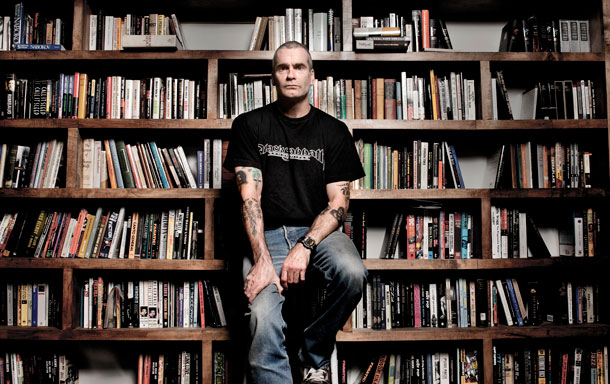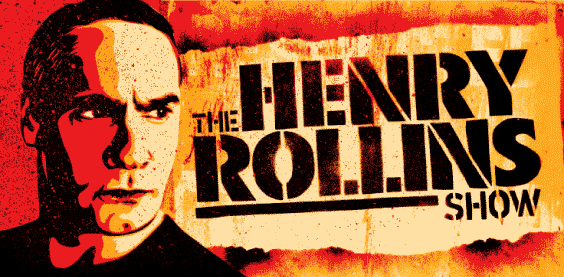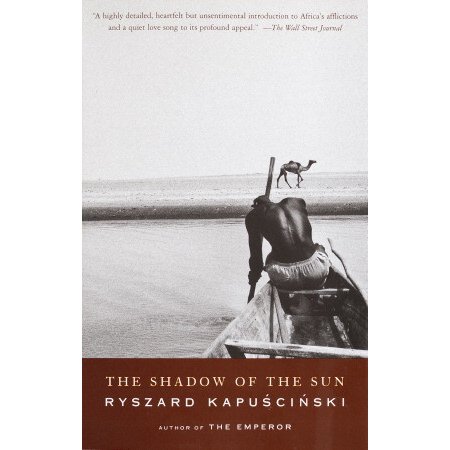“My prolific and deeply flawed utterances over the decades may have perhaps found a resonance with others who can sift through the run-on sentences, and tense inconsistencies to dig where I am coming from. Perhaps they can see that they are not the only one who feels frequently out of step with the rest of the world.”
There are few people out there who can comprehensively converse on topics as broad as Southern Sudanese Independence and hardcore music; Henry Rollins is one of them.
The old adage “don’t judge a book by its cover” was designed specifically for people like Henry Rollins. As a kid, my first introduction to Henry Rollins was the video for his song Liar, with the Henry Rollins band. Essentially, he gave off the vibe of the picture below. I recall being quite terrified of him, and thinking he was probably some lunatic, devil worshiper. Unbeknownst to me, Henry Rollins was actually in the process of becoming one of the most diverse, and well accomplished professionals I may ever come across.
Unpacking just who Henry Rollins is takes a fair amount of explaining, and context. Inevitably, one must first look at music. For most, Henry Rollins is the tough, charismatic, and headstrong lead singer of Black Flag. Many consider Black Flag to be one of the first, and most influential hardcore rock bands in history. For five years Rollins toured, and sang with this band: it was an intense experience to say the least. The aggressive nature of the band led Henry into countless on-stage confrontations, and he was apparently “stabbed with pens” on several occasions. Following his departure from Black Flag, Henry Rollins took creative control of his career, and formed The Henry Rollins Band. Both projects were highly successful, and led Henry Rollins to Grammy awards and world-tours.
Music is certainly a large part of Henry Rollins legacy, but there is much, much more to his story. A shortlist of his accomplishments outside of music is sure to impress anyone:
- Actor (TV, and Movies)
- Radio DJ (KCRW, Indie 193.1)
- Documentary Filmmaker (‘The Warrior Gene,’ “South Africa’)
- Author (with his own publishing company he has written over 20 books)
- Spoken Word Artist
- Activist (World Hunger, LGBT Rights, War)
- TV Host (The Henry Rollins Show)
All totaled this has led many, particularly the press, to label Henry Rollins as a renaissance man. Admittedly, I wasn’t exactly sure what that meant, so I looked it up. The definition and comparison definitely makes sense. A renaissance man is “a present-day man who has acquired profound knowledge or proficiency in more than one field.”
I’m sure if you asked Rollins how he felt about this tag, however, he wouldn’t necessarily accept it. You see, despite Henry Rollins success he retains a strong affinity with his roots, and is highly self-deprecating about his accomplishments. Often citing the fact that he became famous on accident – he was managing a Haagen Das ice-cream store in Washington before he joined Black Flag – Henry Rollins still considers himself to be a white collared, working man.
Having just turned 50 this past February, Henry Rollins has achieved so much in his life already, and shows no signs of slowing down. Considering he is extremely well versed in a lot of areas that interest me greatly, it’s no surprise he was worth trying to contact for an interview. Although currently filming for National Geographic, Henry Rollins was gracious to take some time out of his hectic, and eclectic schedule to correspond via email with me, and answer some of my questions.
From his diverse career, to Nickelback, to global poverty, to his infamous fight on stage, we cover it all.
* * *
Ryan Kohls: Your career is probably one of the most diverse I’ve ever seen. Of all your professional pursuits, which one do you feel most comfortable doing? Which one has been the greatest challenge/provided the biggest learning curve?
Henry Rollins: The most comfortable is doing the radio show. I don’t have to be seen and I can let all that good music do the talking. It’s one of the only low stress things I do.
The greatest challenge is the talking shows. It’s just me up there, and if I stop talking, there’s no show.
What provided the largest learning curve would be acting. It’s not an easy thing to me. When I got the hang of it, that only made me see what a difficult and complex art it is. I am not good, but at least I now understand that there’s a lot to it. For me, that’s coming a long way.
RK: You are currently filming for National Geographic, can you tell me about what you are doing, and how this came to be?
HR: We are almost finished wrapping two out of three documentaries on man and animal relationships dealing with ingestion, worship and things like that. Years ago, someone at Nat Geo was interested in me working with them and after several months of schedules linking up, it came to be.It’s been great so far, but I don’t know how long it will last as the contracts for shows are very limited. It’s hard work but extremely interesting. We get to see some really amazing stuff.
RK: Southern Sudan. You travelled there recently. As of July 9th, 2011 it is now officially the newest country in the world. How do you see this event shaping events in Sudan, and around the region?
HR: I think that there will be some trouble on the southern side of the border. I hope I am wrong. I just don’t see the North giving up all the resources that used to be theirs before the separation.
RK: You’ve publicly campaigned for LGBT rights. Why is this an important issue for you? Is gender/sex equality a foreseeable accomplishment in your opinion?
HR: It is incredible to me that there is even a discussion about this. Some people are gay, that’s a fact. Some of them want to get married. What is the possible harm in that? It is a civil rights issue, and it’s about time that some Americans get over the fact that some people are different than they are. At this point, it’s just pathetic that America, the land of the free, is still hung up on this kind of thing.
RK: Global Poverty. What is our world doing so wrong that millions die of hunger every year? What do YOU believe we can do to start making improvements towards this unjust reality?
HR: It’s no doubt that it’s a very huge and complex problem. If it were just a matter of moving some food to a place that has little, that could be taken care of. There are many reasons that some places are having food insecurity. Some parts of the world are not very inhabitable by humans, yet, they still live in these places. This makes human sustainability challenging. Also, there is the endless problem that basically makes things worse as it tries to make things better. There is a village with food shortages. You send food there. The villagers, now healthy, increase their population as healthy people so frequently do.
Now, due to geographic limitations, climate change and myriad other factors, you now have the same food shortage problem but now there’s more people in the village, increasing the problem. There’s no food supply problem. In America, enough is wasted daily to feed countless people. Same thing in other countries as well. It’s a distribution problem, a population problem and of course, a political problem.What to do? I honestly don’t know. For a long term solution, I really don’t.
RK: What authors/books have most shaped your understanding, and knowledge on the issue of world poverty?
HR: These books taught me a lot:
Ryszard-Kapuscinski’s “Shadow of the Sun”
Ryszard-Kapuscinski’s “Another Day Life”
Paul Roberts “The End of Food”.
RK: On a lighter note, in one of your comedy routines you took a heavy jab at Nickelback – Just how bad do you think they are?
HR: I don’t agree. I don’t think I spent much time on Nickelback. They are just one of those bands that plays murderously mundane, and predictable music. Thankfully, no one makes me listen to them, so I have no real problem with them. There’s a lot of music like that out there. It’s not at my house, so we’re good to go.
RK: You’re a sarcastic and witty writer. What advice, if any, do you have for young writers who are trying to find their voice in the noisy, congested world of news, and journalism?
HR: I don’t know, really. I have always just said it like I thought it should be said, and tried to make my sentences better as time went on. I am self-published, which cuts down on the rejection factor. If I sent my stuff out to publishers, I would have never been published. I can’t recommend that anyone self-publish past a downloadable book these days as selling physical books can be extremely challenging. Even a really great book can get no distribution these days.
RK: For someone who has travelled so much, and been through so much, where do you stand on the existence of God?
HR: My travels have shown to me at least, that there are many people who believe in God. I don’t.
RK: You have a very self-deprecating attitude towards yourself and your success. However, you are an influential individual to many. Why do you think people have gravitated towards your musings on life and music?
HR: My prolific and deeply flawed utterances over the decades may have perhaps found a resonance with others who can sift through the run-on sentences, and tense inconsistencies to dig where I am coming from. Perhaps they can see that they are not the only one who feels frequently out of step with the rest of the world.
RK: When you look back at interviews/performances of yourself in Black Flag, can you still relate to that guy? For example, there is a very popular video of you beating up a Black Flag concertgoer. What emotions go through you when you re-watch that?
HR: I think I know the footage that you’re talking about. That conflict started pre-show and made its way to the stage. As to the man and his face, I feel nothing but failure. Had I been a better puncher, I could have inflicted more damage.
As to myself as a younger person, I did the best I could with what was hurled at me in great amounts.
RK: What are the most valuable life lessons you’ve learned from your early days in Black Flag to the Henry Rollins we see now?
HR: That there’s a lot of opinions out there; that there are many ways of going about things; and that people need a lot of consideration and care for things to have a good result more often than not.
RK: Your old segment, Letters From Henry was classic. I particularly enjoyed the one to Ann Coulter. Who out there right now could use a strongly worded letter from yourself?
HR: Good question. Perhaps President Obama. He frustrates me often, and I would hate to think he’s just like the rest.
RK: Liam Gallagher seems to think he’s the toughest guy in rock n’ roll. How do you think he would fare in a street fight against you?
HR: I don’t think he thinks that. He’s a very small person. I think he perhaps shoots his mouth off a bit. He’s probably never in an environment where he has to deal physically with consequences of what he says. There are a lot of musician types who can very capably compromise your health and immediate future. As to how he would do against me, good grief man, who cares?
RK: You’ve interviewed some of the most fascinating people in the world. Who have been some of your favorites, and why?
HR: Werner Herzog was interesting. I think David Fincher has a very agile mind. It was quite a kick to meet and interview Gore Vidal. I mention these people because they think differently and by doing so, open up the thinking process and considerations of others.
For more information on Henry Rollins:
1) Go to his homepage www.henryrollins.com





0 Comments